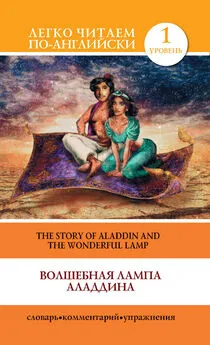Jean Plaidy - To Hold the Crown: The Story of King Henry VII and Elizabeth of York
- Название:To Hold the Crown: The Story of King Henry VII and Elizabeth of York
- Автор:
- Жанр:
- Издательство:неизвестно
- Год:неизвестен
- ISBN:нет данных
- Рейтинг:
- Избранное:Добавить в избранное
-
Отзывы:
-
Ваша оценка:
Jean Plaidy - To Hold the Crown: The Story of King Henry VII and Elizabeth of York краткое содержание
To Hold the Crown: The Story of King Henry VII and Elizabeth of York - читать онлайн бесплатно полную версию (весь текст целиком)
Интервал:
Закладка:
So Marion said no more about Damian and feigned an interest in his work, which she did not really feel, and when Damian arrived she was with the King.
“Damian . . . my good friend,” cried the King, embracing the abbot. “I am right glad to see you here.”
“My lord’s wish is his command as far as I am concerned. I am always at your service, Sire.”
“Well, have you looked at the stars of late?”
“I search them continuously.”
“On my behalf I hope.”
“My lord King is never far from my mind.”
“Well, Damian, well . . . what sex is the child my dear Marion carries so proudly? Is he the King’s son?”
Marion cried: “James! How could he be another’s!”
“Impossible, impossible dear lady. All know your fidelity to their sorrow . . . some declare I am sure. I was about to say, is he the King’s son . . . or daughter?”
This was the sort of question which Damian liked least. One could so easily . . . and so quickly . . . be proved wrong. If one predicted some things it was easy to adjust one’s meaning if the need arose, but the sex of a child—a plain yes or no—that was tricky.
He placed his hands on the girl. She was large. The manner in which she carried the child indicated it might be a boy. The last was a girl. What the King wanted to hear was that it was a boy and his reward would probably be greater if he made the King happy. It was a chance he had to take in any case so why not take the happy chance?
“I think I can say with certainty that the child my lady carries is a boy . . . and your son, my lord.”
“Bless you, Damian. That’s good hearing, eh, Marion?”
“The best, my lord.”
“And will he grow up to be a good boy to his father?”
“He will,” said Marion. “ I shall see to that.”
“There, Damian, you have a rival. The lady is looking into the future and finding the answer before you do.”
“The lady will indeed do all she says. I can confirm that.”
“What a pair of comforters I have! Now tell me of my old enemy below the Border. What trials can you search out for him, Damian?”
“He is beset by them. His eldest boy is sickly.”
“Is he going to die?”
“Not yet . . . but later . . .”
“Ah, there’s another though. A sprightly little fellow by all accounts . . . recently made Duke of York by his doting father.”
“To show, my lord, that there should be but one Duke of York.”
“Well, there is, eh? The other is the true King of England.”
Perkin Warbeck. Here was dangerous ground for Damian. He was always very well informed of affairs so that he knew exactly what was happening. That enabled him to give a considered judgment and once again he had been lucky in being right more often than wrong.
He had the gift of making his prophecies vague. That was the secret. A good sorcerer couched his words in clever obscurity so that when a certain thing happened people said, “Oh that was what Damian meant!”
It was very helpful.
He said now: “A visitor will come to your shores, my lord.”
The King was alert. Was he expecting someone? wondered Damian. It was always wise to say a visitor was coming because visitors came so often to a king. Damian knew that the French were eager to see Perkin Warbeck harry the King of England and that Margaret of Burgundy was helping him, and he knew that the Irish had helped in the past. It was very likely that some messenger would come to Scotland from one of these sources. So it was safe to mention a visitor.
“And how could I receive this visitor?”
“Receive him well. Listen to what he has to say. He will ask your help. Give it.”
That was wise. It was always good to listen and people usually came in supplication. It was never a bad thing to give help when it was asked. This was easy. It was the direct questions such as the sex of a child that made him uneasy.
The Abbot joined the courtiers at the dinner table that day. They all fired questions at him, which amused the King.
And while they were at the meal one of the servants came running into the hall; his face was red and he was almost inarticulate in his desire to impart his startling news.
“A fleet of ships has been sighted off the coast of Scotland, my lord. They are saying it is Perkin Warbeck who comes to you.”
The King rose excitedly. Warbeck! The man who was claiming the English throne. It would be very amusing—and perhaps profitable—to have the man under his roof.
He looked at Damian who was smiling with satisfaction.
“Blessings on you, Damian, here is your visitor. Why the words were scarcely out of your mouth. . . .”
“I did not know that he would be here so soon, my lord,” said Damian modestly.
“You excel yourself, Damian; now I have only to wait for the birth of my son.” He turned to the company. “I think we should prepare to greet our guest,” he said.

James received Perkin Warbeck at Stirling Castle. Perkin had lived as a royal personage for four years and having been schooled in the part by none other than the Duchess of Burgundy, he had come to believe that he was the son of Edward the Fourth. So many times he had told the story of his being handed over to a man who was too soft-hearted to murder him and had set him free to roam the world for a few years before disclosing his identity that he believed it.
To converse with grace, to accept the homage due to his assumed rank, to behave with the manner of a courtier—this was all second nature to him.
Some of the noblemen of the Scottish Court were ready to laugh at his dandified manners because his gracious and graceful behavior made them feel uncouth.
When he had the throne of England, he told James, he would remember those who had helped in his need. He had made many friends during this period of waiting and they could rest assured he would not forget them.
James said he was welcome and offered him a residence and one thousand two hundred pounds a year. Damian had said he should make his visitor welcome and this was surely that visitor.
Letters arrived from Ireland from Lord Desmond telling James that the Irish would support Richard the Fourth and drive the usurping Tudor from the throne. Moreover James took a fancy to Perkin. The young man talked well and seemed in no great hurry to go to make war into England. He was quite content to dally at the Court; he danced well, sang well; indeed he was a gracious courtier and James could well imagine how concerned the Tudor must be below the Border. The last place he would want his enemy to be was plotting with that other ever-present adversary. Moreover it would be easier to march into England over the Border than it ever could be by sea from the Continent. That was a hazardous matter but to creep over the Border, to plant the flag on English soil—that had been done many times and would be done again.
But not yet. They would wait until the time was ripe. Let them have help from overseas. Let the Tudor fret in his bed at night . . . just a little longer.
In the meantime Perkin had noticed beautiful Katharine Gordon. That was interesting. A lovely girl—cousin of the King, Huntly’s daughter. Perkin looked high . . . that was if he were only plain Perkin. Of course, if he were indeed the true King of England it would be an excellent match for Katharine Gordon.
Marion’s child was born. It was a son and so Damian had scored again.
Marion was delighted and so was James. He said the child should be called Stewart after his father. Alexander Stewart. None could doubt with a name like that that he was a true Scotsman.
Damian was clever, Marion agreed, crowing over her little son. He had been right about the child and the visitor.
“And he said that I was to welcome him,” said James. “None can say I have failed as a host. And did you notice, Marion, that our gallant gentleman is casting eyes on Katharine Gordon?”
Marion had noticed. She was ever watchful of Katharine Gordon.
“It would not surprise me,” said James, “if he should ask for her hand.”
“You’ll grant it?”
“Huntly will have to be asked. But if he is indeed the true King of England he should have a bride with royal blood.”
“So you’ll give your consent.”
“I might . . . when it’s asked. I wonder what the Tudor will have to say about his rival’s marrying into Scotland.”
“For that my dear, we must wait and see,” commented Marion.
“And you, my very dear, are as usual right,” said James. He was laughing. He was glad Perkin had come to Scotland. Perhaps soon they would make warfare over the Border. It would be pleasant to see the Tudor ousted and a beautiful Scottish lassie on the throne of England.

Perkin Warbeck was in love.
She was a very beautiful girl, this Katharine Gordon, daughter of the great Earl of Huntly and cousin of the King himself.
She was gracious to him. After all he was an honored guest at the King’s Court. They called him the Duke of York . . . heir to the throne of England . . . more than that, rightful King of that country. He had come a long way from the Warbeck home in Flanders. Fleetingly he thought of John and Katharine Warbeck whom he had believed to be his parents before he learned the fantastic story. What would they have said if they could see their son—or so-called son—now, honored guest in all the courts of Europe, awaiting the moment when he should regain his throne.
He did not want to think too much of those early days in Flanders; they had been put away in some quiet recess in his mind—not to be disturbed, to be left there until they crumbled away into forgetfulness. Especially now he must not remember. What would these people say—the King, and the Earl of Huntly—if they thought a humble Flanders adventurer was asking for the hand of Katharine Gordon.
And Katharine herself? The manner in which she returned his glances, the flush which came to her cheeks at the soft pressure of his hand was enough to tell him with a girl like Katharine. She was not like so many women at James’s Court. To tell the truth its crudity after the elegance of the Court of Burgundy had shocked him. The women were bold and brazen and the men openly coarse. That did not appeal to Perkin. He was immediately attracted to Katharine because she was different from so many of the others.
He contrived to be near her when possible, to talk to her, to attempt to assess what her feelings would be if he were to ask for her hand. The Huntlys were powerful noblemen; they lived close to the King. But the King had shown him the utmost friendship ever since he had arrived in Scotland. He could but try. It would be strange if having done so much for ambition he should falter in love.
In the dining hall of Stirling Castle he contrived to seat himself beside her. From the end of the table he was aware of James watching him and he could swear there was a glint of amusement in his eyes. If he was against a match between them would he allow them to be so much in each other’s company? The Earl of Huntly was present also and he showed no objection.
Beside the King was his mistress Marion Boyd—very sure of herself now that she had a son as well as a daughter and both without doubt the King’s.
Perkin deplored such conduct. The King should marry and settle down and make his Court respectable. If he must have mistresses he should have them in private. Perkin had heard there were negotiations for marriage going on between him and Spain. This showed something of the devious natures of the Spanish Sovereigns for there were similar diplomatic missions in progress between them and Henry Tudor for the same purpose. It was clear that Isabella and Ferdinand were playing one off against the other.
Читать дальшеИнтервал:
Закладка:










